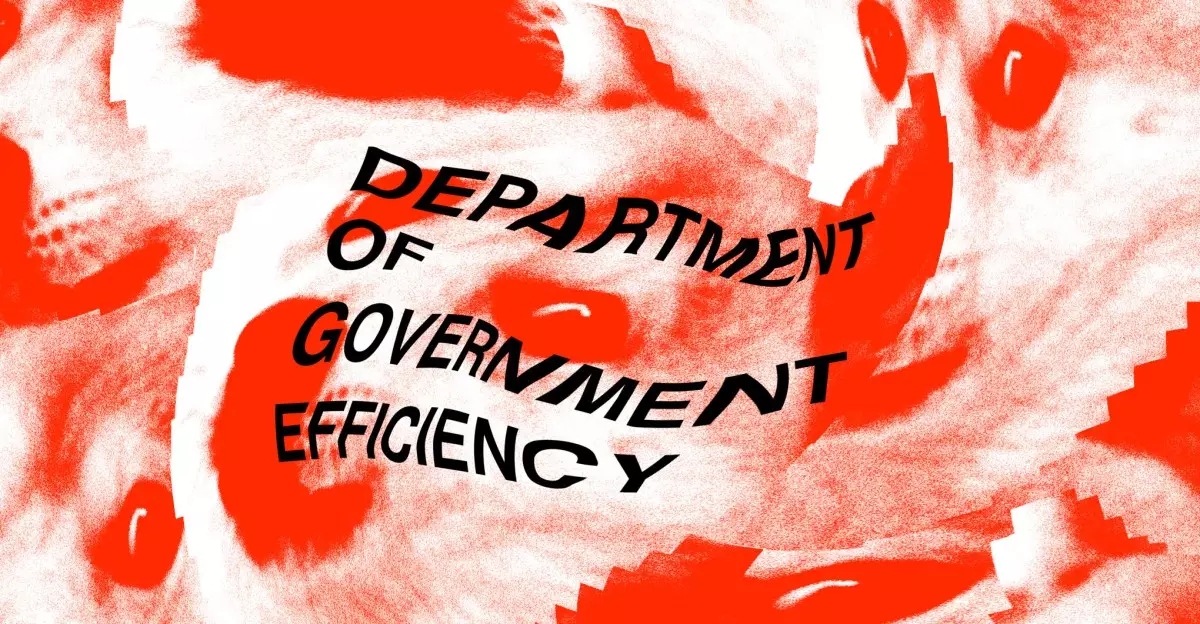In an eye-catching move, Elon Musk’s Department of Government Efficiency (DOGE) is ambitiously seeking to overhaul the way the Internal Revenue Service (IRS) data is accessed and utilized by introducing a ‘mega API’. This incredible feat aims not only to streamline IRS data management but also to connect it uniformly with third-party software solutions. While the aspirations might be commendable, a deep dive into the logistics raises eyebrows regarding the feasibility and implications of such a radical transformation.
The proposed mega API is intended to migrate vast quantities of IRS data to a cloud-based platform, potentially integrating third-party services for easier access. This revolutionary idea stands at the crossroad of innovation and practicality; however, it may also signal a stealthy incursion of corporate interests into public data. In an era where privacy is continually scrutinized, one must question whether partnering with companies like Palantir—renowned for its surveillance capacities—is the best route for public sector credibility.
A Rush That Could Backfire
What’s alarming about DOGE’s timeline to roll out the mega API in just 30 days is the pushback it has elicited from those within the IRS itself. Skepticism from IRS employees suggests this timeline is not only ambitious but potentially disastrous. Experts have voiced concerns that a rapid overhaul could destabilize the agency’s functional integrity, given that adequately understanding and reforming IRS data structures could realistically take years.
The qualifications of DOGE’s young leaders, particularly 25-year-old Gavin Kliger, have been met with skepticism. Critics question the lack of experience not only in government operations but specifically within IRS or tax administration. This raises a quintessential issue: can a collective of youthful tech enthusiasts truly grasp the complexities of a gargantuan system, such as the IRS, that has evolved over decades? If DOGE proceeds without adequately grasping these complexities, it risks setting up an infrastructural failure characterized by inefficiency and data mishandling.
Government Efficiency vs. Ethical Oversight
Moving beyond mere technical capabilities, the ethical ramifications of such an API also demand scrutiny. Senator Ron Wyden’s acknowledgment of the IRS’s apprehension to loosen its data-sharing restrictions indicates a significant concern over governmental privacy violations. The potential to misuse IRS data for purposes like immigration enforcement, as highlighted by past proposals from the Trump administration, underscores an unsettling reality: efficiency does not always equate to ethical governance.
The ambitious vision of a mega API might aim for operational efficiency, but the pathway to it seems riddled with risks—both to the integrity of the IRS and to the citizens whose data would be placed into a shared infrastructure that could potentially serve transactional or political ends. Can we confidently endorse a system that could jeopardize our privacy in the name of efficiency?
In sum, while the mega API presents an enticing prospect of enhanced data accessibility and operational efficiency, it raises significant questions regarding the appropriate balance between innovation and ethical responsibility. The real challenge ahead is navigating the murky waters of efficiency without compromising the foundational tenets that govern the IRS and, indeed, our trust in government.

